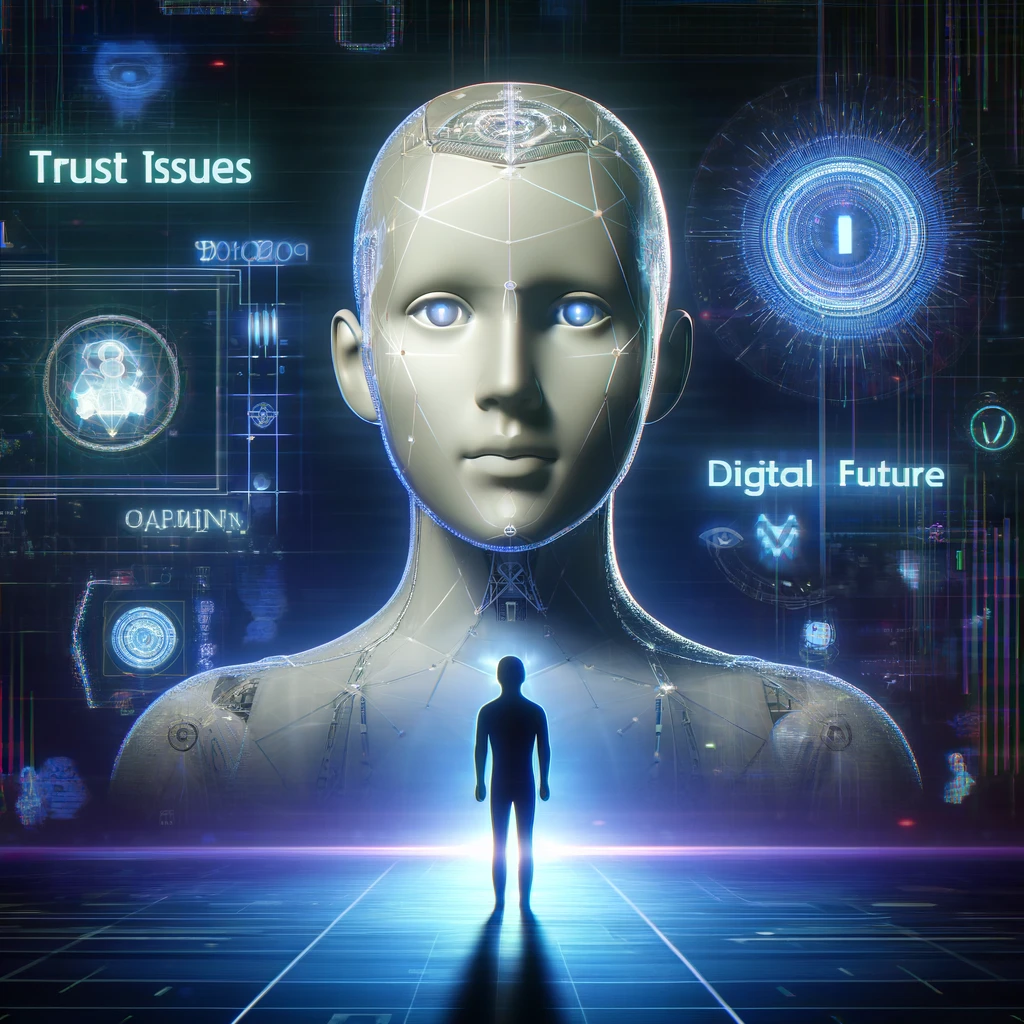Artificial Intelligence—friend or foe? It’s the debate of the decade. Many people feel a strange unease about A.I, even though it’s everywhere, from our phones to our cars. Let’s dive into the heart of the issue: why are we all a bit skeptical when it comes to trusting A.I?
Table of Contents
- The All-Seeing Eye
- The Human Element
- The Dark Side of Data
- Can Machines Be Biased?
- Is A.I Learning Too Fast?
- FAQs
The All-Seeing Eye 👁️
A.I is literally everywhere. Your phone knows where you are, what you want, even when you’re just thinking about something. Some say A.I’s omnipresence is a convenience. But let’s be real—knowing a machine can predict your thoughts is more than a little unnerving.
Imagine a friend who remembers everything you’ve ever said, liked, or bought. Now imagine they use this info to decide what you want before you even ask for it. Comforting? Or kinda creepy?
Fact: Studies show that around 50% of Americans don’t trust A.I in their daily lives.
Learn more about public sentiment toward A.I.
The Human Element 👤
A.I isn’t human, but it’s being designed to act like it is. Chatbots, virtual assistants, and “smart” devices all try to mimic human interactions. The problem? They aren’t human, and they’ll never truly understand us the way another person would.
So, what’s missing?
Humans are complex. We’re driven by emotions, empathy, and ethical reasoning. A.I, however, is driven by algorithms and data. No soul. No empathy. Just lines of code.
Quick Breakdown
| Human Traits | A.I Traits |
|---|---|
| Empathy | Efficiency |
| Emotion | Calculations |
| Ethical thinking | Programmed responses |
Fun Fact: A.I struggles with tasks that require genuine empathy or emotional intelligence.
The Dark Side of Data 💽
Let’s talk about data. A.I’s power lies in the endless streams of data it’s fed. But where does that data come from? Us.
- Every click, like, and scroll provides A.I with more data.
- Our personal preferences, habits, and even our fears are stored and analyzed.
Knowing that our lives are just data points can make us feel… reduced, like we’re no longer individuals but mere input for machines to process.
Trust Issues?
- Privacy Concerns: We’re told our data is secure, but we’ve all heard of breaches and data leaks.
- Data Ownership: Do we own our data, or does it belong to the companies controlling the A.I?
- Ethical Questions: Are we okay with A.I knowing everything about us?
Can Machines Be Biased? ⚖️
Yes! A.I might be built to be unbiased, but in reality, it often absorbs the prejudices present in the data it’s trained on.
Example: Facial recognition software has shown biases against certain demographics because it was trained with data that wasn’t inclusive. Biases get baked into the algorithms, leading to unfair decisions.
Here’s why this matters:
- Job Applications: A.I often helps screen resumes. But a biased A.I could overlook qualified candidates based on race, gender, or age.
- Loan Applications: A.I may deny loans due to socioeconomic factors that shouldn’t affect creditworthiness.
Related Reading: How Bias Creeps into A.I Systems.
Is A.I Learning Too Fast? 🚀
A.I learns at an exponential rate. What took us centuries to understand, A.I can master in weeks. Scary? Maybe.
The Real Fear
When machines start to understand more than we do, they can make decisions faster than we can even comprehend. The pace of A.I development has sparked genuine concern among experts. Will we be able to control it? Or is it destined to outpace us?
FAQs
1. Why does A.I make people uncomfortable?
A.I’s ability to predict, control, and sometimes manipulate feels invasive. Combine that with a lack of transparency, and you have a recipe for distrust.
2. Is A.I truly intelligent or just very fast at processing?
A.I doesn’t “think” in a human way. It processes vast amounts of data quickly but lacks consciousness, emotions, or real understanding.
3. Can we make A.I more ethical?
Possible but difficult. Ethical programming is challenging due to human biases, varying ethical standards, and the limits of current technology.
4. Will A.I ever replace humans entirely?
Unlikely. While A.I will take over certain jobs, the human touch is irreplaceable in areas requiring empathy, creativity, and complex ethical judgment.
So, Why Don’t You Trust A.I?
Let’s face it—A.I is powerful, pervasive, and has the potential to know us better than we know ourselves. It’s like standing at the edge of a cliff. We know the view is breathtaking, but one wrong step, and we could be in trouble.
Are we ready to leap into a future dominated by algorithms?
Want more on the A.I debate? Dive deeper into the A.I revolution.
This article doesn’t cover it all, but it opens the door to understanding why many of us are still wary of A.I. After all, trust isn’t built overnight—and with A.I, maybe it’ll take a lifetime.


